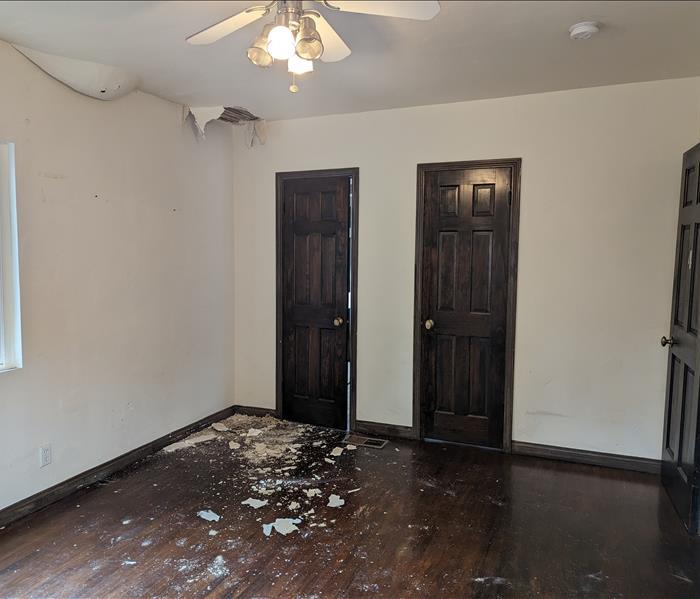Rental Properties and the Battle Against Water Damage
1/30/2024 (Permalink)
 Rental property had a roof leak that caused ceiling to collapse due to amount of water inside the wall cavity.
Rental property had a roof leak that caused ceiling to collapse due to amount of water inside the wall cavity.
Rental properties are valuable assets for landlords, offering steady income streams and potential long-term wealth. However, water damage poses a significant threat to the integrity and profitability of these investments.
Visible water damage, mold growth, and lingering odors can diminish the appeal of rental units, making them less attractive to potential tenants. This can result in longer vacancy periods and decreased rental income and property devaluation.
Landlords are legally obligated to provide habitable living conditions for tenants. Failure to address water damage promptly could result in legal disputes, tenant dissatisfaction, and potential liability for property-related injuries or health issues caused by mold or dampness.
Tenant actions, such as neglecting to report leaks, improper use of plumbing fixtures, or failing to ventilate high-moisture areas, can contribute to water damage in rental properties.
Immediate response to tenant reports of leaks or water-related concerns is crucial. Timely repairs can prevent minor issues from escalating into major water damage incidents.
Informing tenants about proper maintenance practices, reporting procedures for water-related issues, and encouraging responsible behavior can help mitigate potential risks.
By prioritizing maintenance, fostering tenant cooperation, and having robust insurance coverage, landlords can protect their investments and ensure the longevity and success of their rental properties. Ultimately, proactive measures against water damage safeguard not only the property but also the landlord's financial well-being and the satisfaction of their tenants.






 24/7 Emergency Service
24/7 Emergency Service